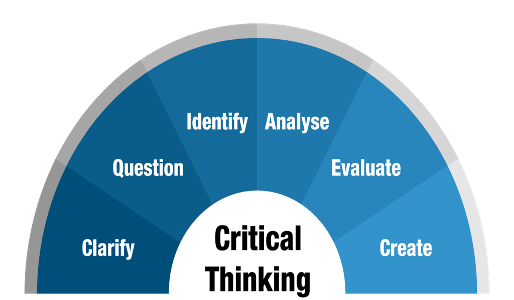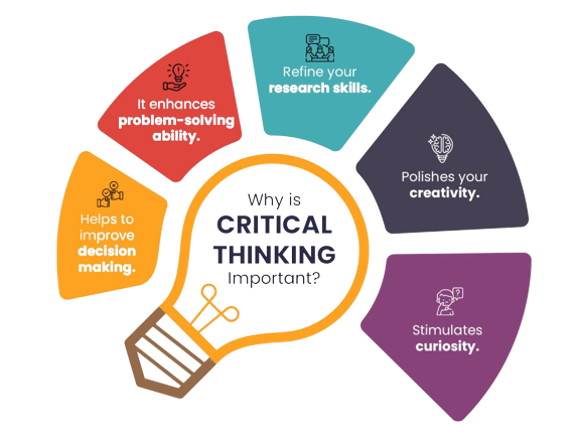Feb 19th - 1 Min Read
Critical Thinking’s Way to Success
By:Critical thinking is questioning, analyzing, evaluating, and judging what we do and perceive from reading, hearing, or seeing. It is making a reliable judgment based on reliable information. In psychology, self-criticism is typically studied and discussed as a negative personality trait, however critical thinking is to clarify our thinking so that we can break down a problem or a piece of information, analyze it, and use that understanding to reach an informed decision or judgment.
Critical thinking is that mode of thinking - about any subject, content, or problem - in which the thinker improves the quality of their thinking by skillfully taking charge of the structures inherent in thinking and imposing intellectual standards upon them.
The quality of our life and what we produce, make, or build depends precisely on the quality of our thoughts. Shoddy thinking can cost our time, and money and leave a long-term effect on our life, but excellence that’s taught with constructive critical thinking must be systematically cultivated. Well-cultivated critical thinking requires raising vital questions and problems and formulating them clearly and precisely.
Critical thinking also requires gathering relevant information and using abstract ideas to decode it effectively resulting in well-reasoned conclusions and solutions, thinking open mindedly within the alternative system of thought, assessing their assumptions, implications, and practical consequences.
Critical thinking is, in short, self-directed, self-disciplined, self-monitored, and self-corrective thinking. It presupposes the approval of strict standards, excellence, and mindful command of their use. It entails effective communication and problem-solving abilities and a commitment to overcome our native egocentrism and sociocentrism. In an academic context, critical thinking is most commonly associated with arguments whether it is to understand an idea within yourself or others, learning these can help develop critical thinking:
1- Clarify: clarifying the purpose of the thought and context.
2- Question: questioning the source of the thought or information.
3- Identify: Identify the argument or the thought.
4- Analyse: analyze the source of the argument or the thought
5- Evaluate: evaluate the thought and arguments of others
6- Create: synthesize your own argument and thoughts.

Critical thinking is vital in any aspect of life, whether in the early stage of life when a child decides whether to eat a fruit or not or a teenager choosing their friend group or their college major, critical thinking helps to make the best decision, the benefit of critical thinking includes:
- Improving decision-making
- Enhancing problem-solving ability
- Refining research skills Polishing creativity.
- Stimulating curiosity.

